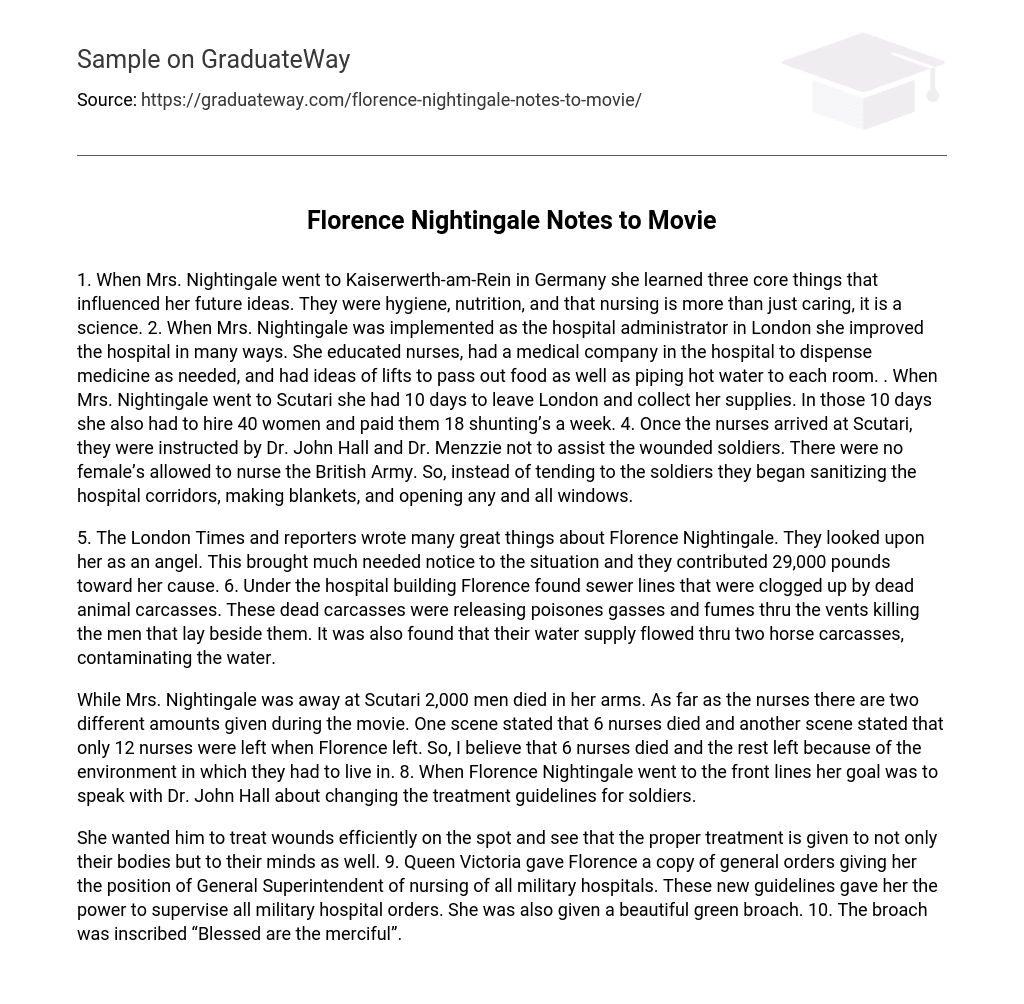1. When Mrs. Nightingale traveled to Kaiserwerth-am-Rein in Germany, she acquired three fundamental principles that would shape her future ideas: hygiene, nutrition, and the recognition that nursing extends beyond caregiving by encompassing scientific knowledge.
2. As the hospital administrator in London, Mrs. Nightingale introduced numerous improvements. These included nursing education, the establishment of a medical company within the hospital to supply medicines, and the proposal of food delivery using lifts and provision of piping hot water in each room.
3. Prior to departing for Scutari, Mrs. Nightingale had a mere 10 days to gather supplies and recruit 40 women, whom she paid 18 shilling per week.
4. Upon arrival at Scutari, the nurses were instructed by Dr. John Hall and Dr. Menzzie not to directly care for the injured soldiers, as it was against regulations for females to nurse the British Army. Consequently, they focused their efforts on sanitizing the hospital corridors, producing blankets, and ensuring the windows were open.
5. Florence Nightingale was highly praised by The London Times and reporters, who regarded her as an angel. Their positive recognition shed light on the situation and they donated 29,000 pounds to support her cause.
6. Beneath the hospital building, Florence discovered sewer lines that were obstructed by dead animal carcasses. These lifeless remains were emitting toxic gases and fumes through the vents, resulting in the deaths of adjacent men. Furthermore, it was discovered that their water supply passed through two horse carcasses, leading to water contamination.
During Mrs. Nightingale’s absence at Scutari, approximately 2,000 men passed away in her presence. The movie portrays conflicting information regarding the number of nurses affected, with one scene mentioning the death of 6 nurses and another scene indicating that only 12 nurses remained upon Florence’s departure. Consequently, I speculate that 6 nurses perished while the others chose to leave due to the challenging living conditions. Furthermore, when Florence Nightingale ventured to the battlefield, her objective revolved around engaging in a discussion with Dr. John Hall regarding the modification of treatment protocols for soldiers.
She desired him to provide prompt and effective care for injuries and ensure that proper treatment is administered to both their physical and mental well-being. 9. Queen Victoria presented Florence with a document appointing her as the General Superintendent of nursing for all military hospitals. These guidelines granted her authority to oversee all orders related to military hospitals. Additionally, she received an exquisite green brooch. 10. The brooch was engraved with the words “Blessed are the merciful”.





